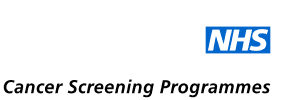Helping women make an informed choice about screening

Helping women make an informed choice about screening |
 |
|
|
Published 1st November, 2001 Health Minister Lord Hunt, TV anchorwoman and former trainee radiographer Fiona Phillips, and representatives from cancer charities today joined the NHS Cancer Screening Programmes at the British Library to launch 'informed choice'. This major new information initiative gives women clear, honest and balanced information about the benefits and limitations of cervical and breast screening, meeting the commitment in the NHS Cancer Plan that all women should receive a national information leaflet on breast and cervical screening by 2001. Designed to ensure that women are told what screening can and cannot achieve, the leaflets include an explanation about false positive and false negative results, and address the need to inform patients about the use made of personal information for audit, as set out in the General Medical Council guidance on confidentiality. This means that women should be able to make a genuinely informed choice based on an understanding about why they are attending for screening, and what happens to their records after being screened. The information will be sent to all women in England with their invitations for breast and cervical screening. The leaflets have been extensively researched and tested to ensure that they are easy to understand. Produced in conjunction with the Cancer Research Campaign's Primary Care Education Research Unit, the process has included working with focus groups drawn from a diverse range of women. The leaflets have received the Crystal Mark from the Plain English Campaign, and the text has been adapted to include a number of national initiatives, including:
The leaflets will be translated into five languages including Gujarati, Punjabi, Urdu, Bengali and Cantonese, covering 90 per cent of the languages of ethnic minority groups in the UK. They will be available from the screening programme's website (www.cancerscreening.nhs.uk) in the near future. The NHS Cancer Screening Programmes are planning to produce the leaflets in Braille, and on tape. Commenting, Lord Hunt said: "Informed choice is part of the drive for openness and transparency within the NHS, and we hope that by providing accurate information about what screening can and cannot achieve, so women will be able to make an informed decision about attending." Julietta Patnick, National Coordinator of the NHS Cancer Screening Programmes, added: "These leaflets effectively are an offer of a contract between the screening programmes and women. While the screening programmes always do their very best for women, there are no guarantees that screening is 100 per cent effective, and this is what women need to understand when deciding to attend. We are providing women with honest and accurate information to help them in this decision. We are confident screening is saving lives, and so we very strongly encourage women to attend for their smears and mammograms, but in the end it is not our choice, it's up to the individual woman." Fiona Phillips, TV presenter said: "As a first career I trained as a radiographer, so I am only too aware that screening for breast cancer is not always 100 per cent fool proof. But I have had a close relative whose breast cancer has been detected by the screening programme, and so I feel strongly that women should come forward for both breast and cervical screening as it can save their lives. As a professional communicator, I welcome this material that will help allow women fully to understand the screening process." |
|
||||||||
|
||||||||||